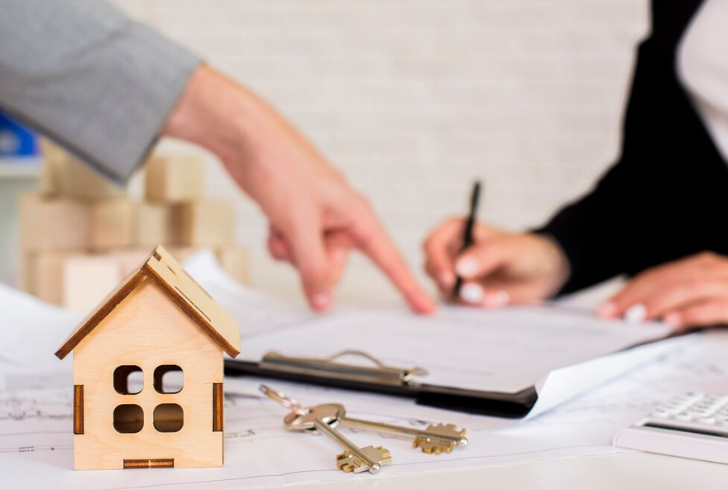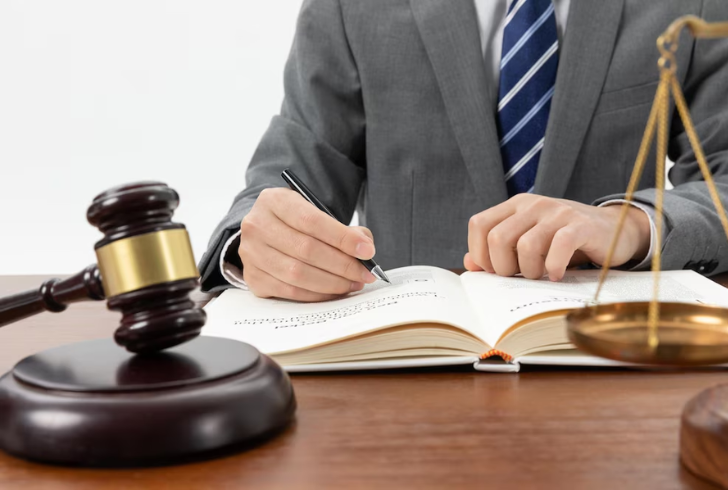
How to Buy Foreclosed Homes With No Money

Entering the world of real estate investing can seem daunting, especially when you’re low on funds. If you’ve ever wondered how to buy foreclosed homes with no money down, you’re not alone. Many new investors face this challenge, but with the right strategies, buying foreclosed properties without a substantial upfront investment is possible.
This guide will walk you through various methods, offer practical advice, and help you navigate the complexities of foreclosures to kickstart your investment journey.
Understanding Foreclosure
Foreclosure is a legal process that occurs when a homeowner fails to keep up with their mortgage payments. The lender initiates foreclosure by filing a notice of default, which eventually leads to the property being auctioned off. For investors, foreclosures present a unique opportunity to purchase properties at potentially lower prices.
Types of Foreclosed Properties
1. Pre-foreclosure

Freepik | Pre-foreclosure marks the beginning of the process, where the lender sends out a notice of default.
This is the initial stage where the lender issues a notice of default. Here, you might be able to convince the homeowner to sell directly to you, preventing foreclosure and a negative mark on their credit report.
2.Short Sale
When a property’s value dips below the outstanding mortgage, a short sale allows the lender to accept a reduced selling price. This process can be lengthy, requiring lender approval.
3. Sheriff’s Sale Auction
Public auctions where the property is sold “as-is” to the highest bidder. While a great way to snag a deal, you won’t have the chance to inspect the property beforehand.
4. Bank-Owned Properties (REO)
Foreclosed homes that haven’t sold at auction become REOs, owned by the bank. These properties are typically priced competitively to encourage a quick sale.
How to Buy Foreclosed Homes With No Money
1. Loan Assumptions
A loan assumption involves taking over the existing mortgage from the seller. This option is available only with certain types of assumable mortgages. You will need to compensate the seller for their equity in the home, but it allows you to bypass the traditional mortgage application process.
There are two types of loan assumptions:
- Simple Assumption – This involves transferring the mortgage without lender involvement. The buyer and seller remain jointly responsible for the mortgage until it is fully paid off.
- Novation – This requires lender approval to transfer the mortgage obligation entirely to the buyer. The buyer will need to go through the underwriting process, and the lender will officially release the seller from the mortgage.
2. Government-Backed Loans
If an assumption isn’t feasible, government-backed loans offer another route.
- FHA 203(k) Loan – Designed for buyers purchasing a property in need of repairs. It allows you to borrow additional funds for renovations. Note that this loan comes with higher interest rates and the need for an independent consultant’s assessment.
- VA Loans – Available to veterans and military personnel, these loans might offer favorable terms if the property meets specific criteria.
- USDA Loans: For rural properties, these loans can provide 100% financing but come with income and credit requirements.
3. Explore Alternative Financing
If traditional mortgages aren’t an option, consider these alternatives:
- Private Loans – Borrow from family, friends, or private lenders who may offer flexible terms compared to traditional banks.
- Credit Lines – Use a personal credit line or credit cards to cover the initial purchase or repairs.
- Co-Investing – Partner with other investors to pool resources. This approach can reduce individual financial burden and share risks.
Navigating Auctions and REO Properties
Public Auctions

Freepik | wirestock | Foreclosed properties are often sold at public auctions, typically held at local courthouses.
Public auctions are a common way to purchase foreclosed properties. These auctions are usually held at a local courthouse and are advertised through notices of sale. Properties sold at auction are typically in an “as-is” condition, so it’s crucial to perform due diligence beforehand. Ensure you verify the property’s condition and clear title status to avoid potential issues.
REO Properties
When properties don’t sell at auction, they become REO properties. Banks and lenders often want to dispose of these quickly and may offer attractive deals. While you may have more time to inspect and secure financing for REO properties, expect more competition and a more rigid purchasing process.
Pros and Cons of Buying Foreclosed Homes
Advantages
- Lower Purchase Price – Foreclosed homes are often priced below market value, offering potential for significant savings.
- Potential for Profit – Buying low and investing in renovations can lead to substantial returns.
Disadvantages
- Hidden Costs – Foreclosed properties may come with back taxes, liens, or repair needs that could add to your total investment.
- Lengthy Process – The purchase process can be slow, especially with auctions and bank-owned properties, where paperwork and approvals can delay closing.
- Condition Uncertainty – Properties bought at auction or through REO may have undisclosed issues requiring costly repairs.
Learning how to buy foreclosed homes with no money is entirely possible with the right approach and preparation. By utilizing strategies such as pre-foreclosure deals, loan assumptions, and alternative financing methods, you can start investing in real estate without needing a significant upfront investment. It’s crucial to conduct thorough research and plan carefully to transform these opportunities into successful investments, even when working with a tight budget.
More inShopping
-
Did Tyler Perry Buy BET? The Story Behind the Partnership
Did Tyler Perry buy BET? While the media mogul’s attempt to acquire BET captured headlines in 2023, the story took an...
June 10, 2024 -
Fun and Exciting Things to Do When You’re Bored With Friends
Ever feel that awkward silence creeping in during a hangout with your friends? Been there, done that! We all know the...
June 4, 2024 -
What Is Equity in Business? Here’s What You Need to know
When embarking on the journey of growing a business, it’s crucial to grasp the concept of equity. So, what is equity...
June 2, 2024 -
Here Are the Best Saving Money Challenge to Boost Your Bank Balance
Ever feel like saving money is a daunting task? Imagine turning it into a fun game or a friendly competition! This...
May 25, 2024 -
Is Cardi B Dominican? The Star Sets the Record Straight on Her Identity
In the vibrant world of social media, where every aspect of a celebrity’s life is scrutinized, Cardi B recently took a...
May 19, 2024 -
Why Is It Important to Reconcile Your Bank Statements? The Ultimate Guide
Why is it important to reconcile your bank statements? Many business owners view bank statement reconciliation as a tedious task. However,...
May 12, 2024 -
Unlock Free Trips By Paying Mortgage & Loans with Credit Cards
Making large payments wouldn’t have been easier if it weren’t for credit cards. The system ensures full safety and quick transfer....
May 2, 2024 -
Skimpflation: Is Luxury Losing Its Luster?
In the glamorous world of luxury, a quiet revolution is underway, and it goes by the name of ‘skimpflation.’ Imagine your...
April 26, 2024 -
Is WinCo Cheaper Than Walmart? A Detailed Comparison
When you think of grocery shopping on a budget, Walmart probably comes to mind as a go-to destination. But have you...
April 23, 2024















You must be logged in to post a comment Login